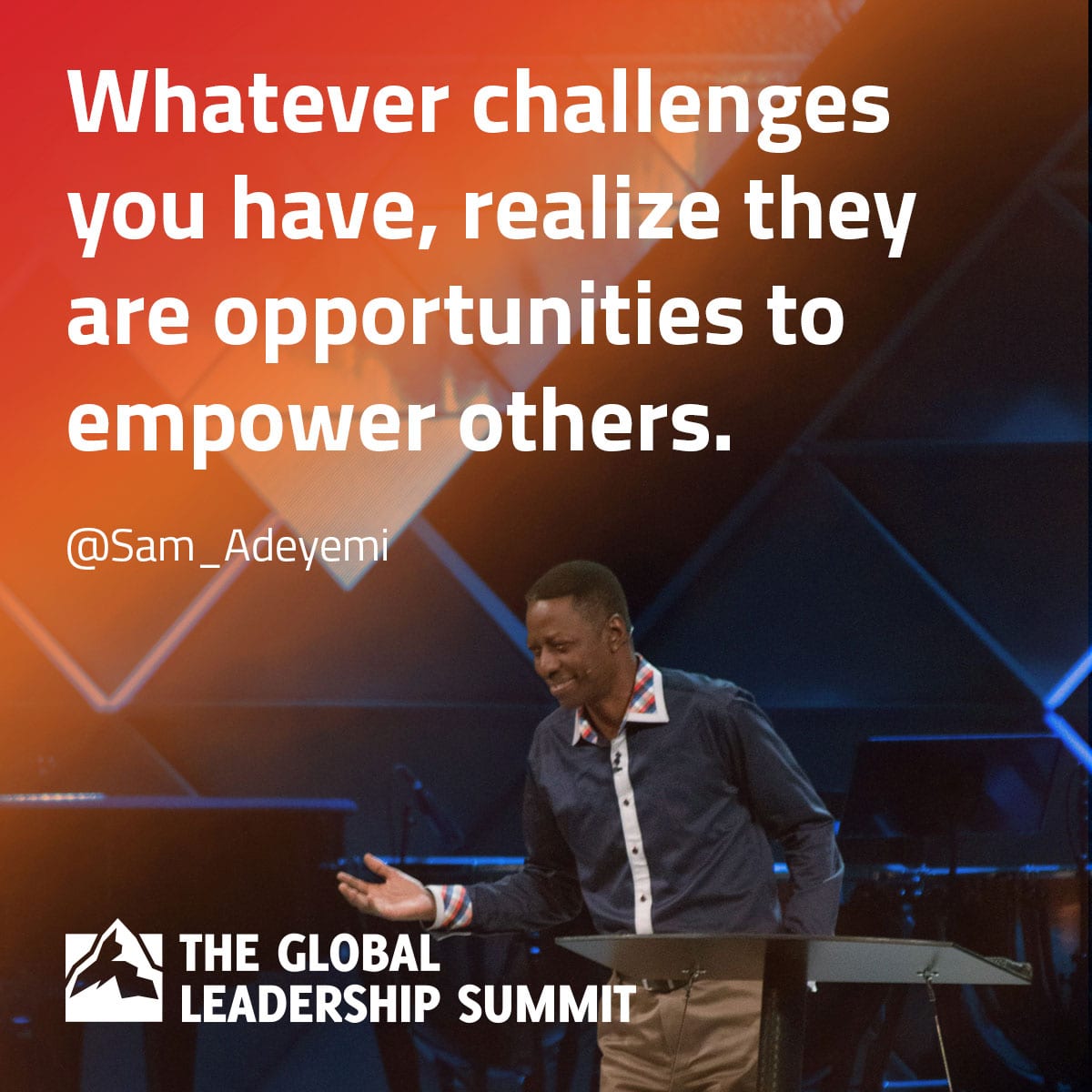
Whatever challenges you have, realize they are opportunities to empower others.

Whatever challenges you have, realize they are opportunities to empower others.
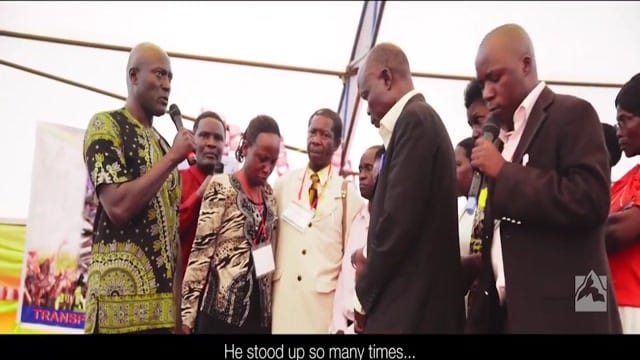
Joshua Lwere’s story of how a the repentance of a son – acknowledging the sins of his father – brought forgiveness and healing to a whole country.
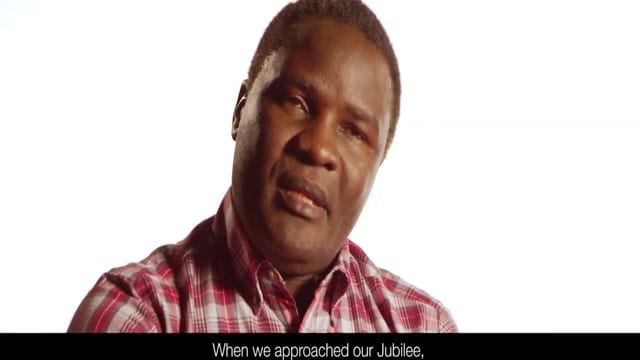
Joshua Lwere’s story of how repentance was necessary for a nation to grieve and collectively forgive after a history of atrocity.

Adeyemi, in all transparency, shares how God impressed upon him that he had been placing his desire for success in his own personal security. God’s desire for Adeyemi’s leadership and yours is the same – to serve the people who follow you.
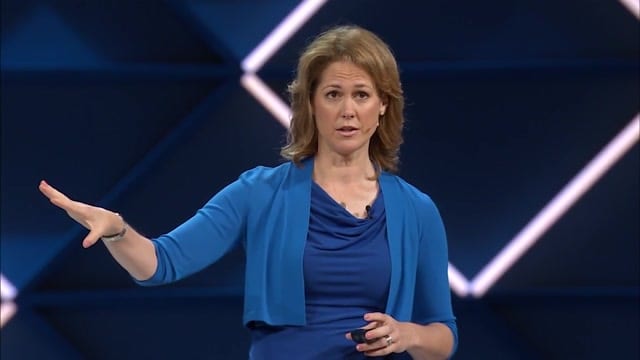
Before you assess whether feedback is right or wrong, stop and ask clarifying questions. In this excerpt, Heen describes key skills for receiving feedback well.
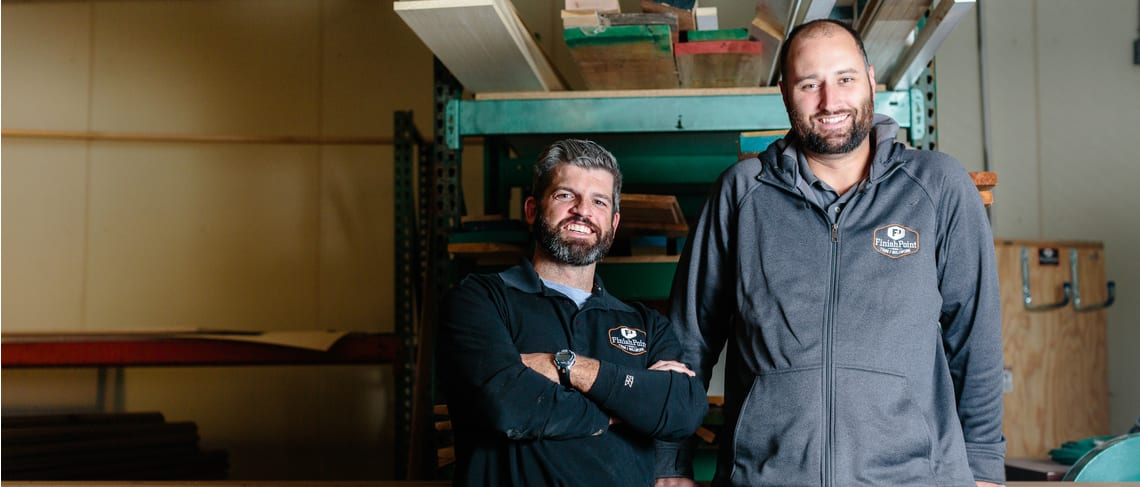
 Josh Andrews is the CEO and Founder of Finish Point, a carpentry and millwork company based out of Knoxville, Tennessee. When he first began working as a home remodeler in 2007, he was a one-man show, but has since grown to a staff of 20, expanding the company’s services through the entire Tennessee Valley.
Josh Andrews is the CEO and Founder of Finish Point, a carpentry and millwork company based out of Knoxville, Tennessee. When he first began working as a home remodeler in 2007, he was a one-man show, but has since grown to a staff of 20, expanding the company’s services through the entire Tennessee Valley.
But Finish Point is not your typical contract company. Josh sets his goals for something much higher. The way he leads his company is an inspiration, and he is breaking the mold of expectation for the average tradesman and changing the way people see carpenters.
Here are the six ways Josh integrates his faith in the workplace, and grows his business as a result:
 Our published company values are influenced by Christian thought. Integrity is a non-negotiable. We have forgone piles of cash by seeking to do the right thing and our staff knows it. Whether it’s standing behind our work or holding to our commitments, no matter the cost, we seek to do the right thing. My opinion of Jesus is that he met practical needs everywhere he went, adding substantial value to the message he brought. In our business, I seek to identify and target needs as I share the message of hope in word, thought and deed. In my opinion, helping people achieve amazing things professionally meets a “need” in their lives and opens the door for conversations about Christ, which are much more welcome when people know you care about them enough to actually do something for them.When someone trusts me and makes a life decision to work in our company, I’m very sobered and hopeful that we can deliver on our promise to value them and help them achieve great things. Anything short of it is an integrity issue for me.
Our published company values are influenced by Christian thought. Integrity is a non-negotiable. We have forgone piles of cash by seeking to do the right thing and our staff knows it. Whether it’s standing behind our work or holding to our commitments, no matter the cost, we seek to do the right thing. My opinion of Jesus is that he met practical needs everywhere he went, adding substantial value to the message he brought. In our business, I seek to identify and target needs as I share the message of hope in word, thought and deed. In my opinion, helping people achieve amazing things professionally meets a “need” in their lives and opens the door for conversations about Christ, which are much more welcome when people know you care about them enough to actually do something for them.When someone trusts me and makes a life decision to work in our company, I’m very sobered and hopeful that we can deliver on our promise to value them and help them achieve great things. Anything short of it is an integrity issue for me. I’m in this for the long haul. I realize I may be the first or last exposure someone has to the love of Jesus manifest in the people he has called. I don’t worry too much about where I stand in the lineup of interaction one might have before coming to faith in Christ, but I do know I’m somewhere in the lineup. No matter where someone stands, I feel the desire to keep pushing the needle toward belief in God and a relationship with him through the way I treat people consistently. It’s my opinion that our society is tired of talk. They’re desperate to see love lived out. I try to refrain from advertising faith, but I seek desperately to live it out by working hard to serve the people who work for me.
I’m in this for the long haul. I realize I may be the first or last exposure someone has to the love of Jesus manifest in the people he has called. I don’t worry too much about where I stand in the lineup of interaction one might have before coming to faith in Christ, but I do know I’m somewhere in the lineup. No matter where someone stands, I feel the desire to keep pushing the needle toward belief in God and a relationship with him through the way I treat people consistently. It’s my opinion that our society is tired of talk. They’re desperate to see love lived out. I try to refrain from advertising faith, but I seek desperately to live it out by working hard to serve the people who work for me. We desire to raise the bar for authentic craftsmanship back to the respected pedestal it once stood on. There was a time in history when tradesmen were proud of the career they had committed their lives to, and people of all professions respected those who knew how to do amazing things with their hands. We desire to bring that esteem back. Long term, we hope to make an international impact in the skilled trades industry by influencing the way people run their businesses and the level of excellence they aspire to. Delivering what we sell is a big deal to me. For customers it’s important, but for employees the stakes are even higher.
We desire to raise the bar for authentic craftsmanship back to the respected pedestal it once stood on. There was a time in history when tradesmen were proud of the career they had committed their lives to, and people of all professions respected those who knew how to do amazing things with their hands. We desire to bring that esteem back. Long term, we hope to make an international impact in the skilled trades industry by influencing the way people run their businesses and the level of excellence they aspire to. Delivering what we sell is a big deal to me. For customers it’s important, but for employees the stakes are even higher. The majority of our staff is extremely proud of our company and culture and it’s not uncommon for someone in our company to reference how their quality of life has gone up as a result of working at Finish Point. I know I can hire a new person, sell them on the company, give them a pep talk and initial training and put them on a team knowing that the guys they work with every day will make a better impression than I did on the front end.
The majority of our staff is extremely proud of our company and culture and it’s not uncommon for someone in our company to reference how their quality of life has gone up as a result of working at Finish Point. I know I can hire a new person, sell them on the company, give them a pep talk and initial training and put them on a team knowing that the guys they work with every day will make a better impression than I did on the front end. Pressing through my fears about my incompetence and shortcomings and leading our staff in leadership development is something I have said yes to over the last two years. Using tools like the Gallup Strengths Finder assessment and introducing my staff, especially rising managers, to good content for leadership growth and helping them understand how their strengths help them be a great leader while giving them tools to help with their weaknesses. As a result, we have a staff that is increasingly learning to value the diversity in leadership style and strength around us as opposed to letting it drive us apart. I currently believe God is calling me to help my staff achieve as much as possible, whether or not I get compensated for it in this life time.
Pressing through my fears about my incompetence and shortcomings and leading our staff in leadership development is something I have said yes to over the last two years. Using tools like the Gallup Strengths Finder assessment and introducing my staff, especially rising managers, to good content for leadership growth and helping them understand how their strengths help them be a great leader while giving them tools to help with their weaknesses. As a result, we have a staff that is increasingly learning to value the diversity in leadership style and strength around us as opposed to letting it drive us apart. I currently believe God is calling me to help my staff achieve as much as possible, whether or not I get compensated for it in this life time. I first came to the Summit in 2014. The first year I brought 4 of 12 staff members, which, in my opinion, was the crucible that started the most meaningful and life/business-changing efforts I have experienced since striking out on my own eight years ago. The GLS is helping our team achieve great things. Our customers love us, our team members are experiencing life change, and I’m learning to love life, my family and my work in more impactful and sustainable ways. It is helping me grow into the leader I need to be to teach others and increase the capacity in our organization. The eternal impact we make with our organizations in this life is all that matters, and the GLS will help your whole staff align with what really matters in this life.
I first came to the Summit in 2014. The first year I brought 4 of 12 staff members, which, in my opinion, was the crucible that started the most meaningful and life/business-changing efforts I have experienced since striking out on my own eight years ago. The GLS is helping our team achieve great things. Our customers love us, our team members are experiencing life change, and I’m learning to love life, my family and my work in more impactful and sustainable ways. It is helping me grow into the leader I need to be to teach others and increase the capacity in our organization. The eternal impact we make with our organizations in this life is all that matters, and the GLS will help your whole staff align with what really matters in this life.Are you interested in attending the Summit and learning more about how to integrate your faith in the workplace? Click here to register for the 2016 Summit, or read more from Josh about what can happen in your company when your team attends this year.
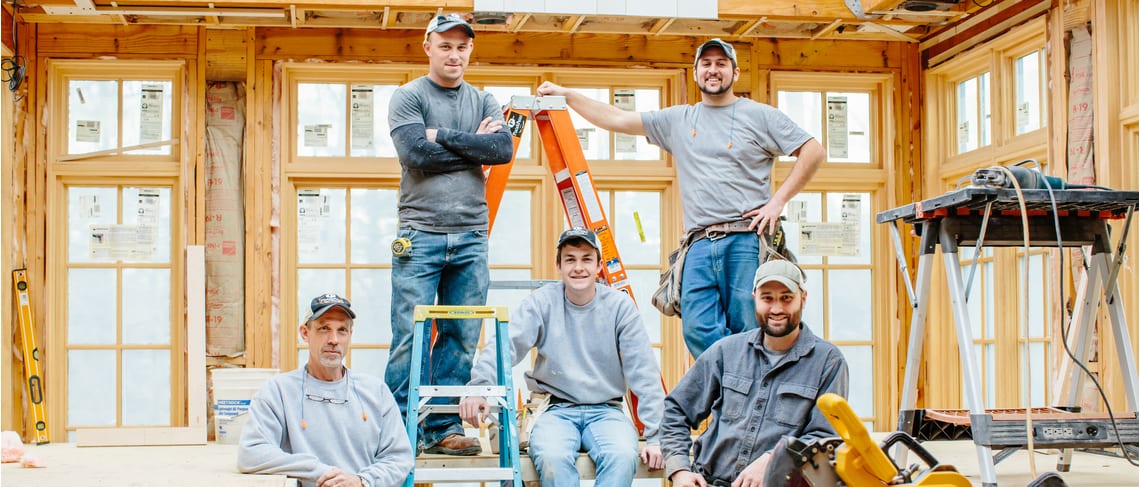
 Josh Andrews is the CEO and Founder of Finish Point, a carpentry and millwork company based out of Knoxville, Tennessee. When he first began working as a home remodeler in 2007, he was a one-man show, but has since grown to a staff of 20, expanding their services through the entire Tennessee Valley.
Josh Andrews is the CEO and Founder of Finish Point, a carpentry and millwork company based out of Knoxville, Tennessee. When he first began working as a home remodeler in 2007, he was a one-man show, but has since grown to a staff of 20, expanding their services through the entire Tennessee Valley.
But Finish Point is not your typical contract company. Josh sets his goals for something much higher. The way he leads his company is an inspiration, and he is breaking the mold of expectation for the average tradesman and changing the way people see carpenters, and the GLS is helping him to achieve these goals. (To learn more about how Josh integrates his faith in the workplace, read his story here.)
Here are six reasons Josh recommends bringing your team to the GLS in 2016:
What could happen on your team? To register your team for the Global Leadership Summit, click here.

Rich Stearns, president of World Vision and one of our Willow Creek Association partners, has seen firsthand the humanitarian crisis that record-numbers of refugees experience in our world today. Recently, he wrote a column for The Huffington Post describing why Christians should get involved.
Are some lives more important than others? That’s the question many are asking after seeing how the attention Westerns paid to attacks in Paris and Brussels far outweighed the concern shown to the victims of bombings in Beirut and Islamabad, respectively, within a few days of those events. It’s also the fundamental question behind how to care for Syrian refugees in the Middle East or elsewhere. We know that Syrian refugee families are suffering, but what about increasing security risks?
That’s the notion that I’ve been challenging in a number of churches over the last several months as the refugee crisis has escalated. Christ’s command to love our neighbors as ourselves is both practical and personal. Jesus sets an almost impossible standard for us — we are called to love someone else’s children as much as we love our own, because they are all his kids.
Last October, I met Abir and her five daughters in a refugee settlement in Lebanon. The family first considered leaving Syria when they struggled to feed their family, but it was a sniper’s bullet that eventually forced their decision. With the gunshot wound in her leg starting to heal, Abir walked eight hours with her daughters in order to escape the country. Abir’s husband remains in Syria, and they have lost contact. She doesn’t know whether he is alive or dead.
Today, Abir and her daughters live in a one-room tent in Lebanon that is smaller than a typical American child’s bedroom. Abir isn’t allowed to work in Lebanon, so they live on handouts. Because of funding shortages, the World Food Program has reduced its assistance to a food allowance of a paltry $21 per person per month. This is not enough to live on, and many refugee families are forced to send their young boys out to work and their young daughters out to marry.
Abir is doing her best to protect her daughters, and they stay within the confines of their encampment. “The girls ask me to get them out of this prison,” Abir said to me. They don’t leave the tent settlement because it isn’t safe. “Our rights are violated,” Abir said. “When I shop, I leave the girls here, and I shut the door.” Her life has now shrunk to a moment-by-moment existence. “We cannot plan for more than today,” Abir said. “We live hour by hour.”
Today, more than 12 million people, half of them children, have been forced to flee from their homes in Syria because of civil war. Some have seen loved ones violently killed. Some have been injured themselves. They have left their homes, their bedrooms, their toys, their schools and their friends behind — taking only the clothes on their backs.
They leave Syria — making their way to Lebanon, Turkey, Jordan and other neighboring countries — and that’s where they need assistance. Only a small percentage have the resources to get to Europe. They are desperately trying to find a better life somewhere. Anywhere. Hoping that someone will help them, that someone will care. If we really care, we will help them as close to their home as possible.
For four and a half years, Americans mostly ignored this terrible crisis in the Middle East and the acute human suffering it has caused. Because you see, they were somebody else’s kids — not ours.
Imagine the person you love most in the world and how you would feel if they were suffering like this. Imagine that they were being abused, that they were hungry and without clean water, that they were terribly sick. Imagine how desperately you would try to do anything in your power to help them. This is exactly how Jesus feels about every single one of these refugee children.
It shouldn’t matter that they are 10,000 miles away.
It shouldn’t matter that they speak a different language or that they are of a different race.
It shouldn’t matter that their governments might be to blame.
It shouldn’t matter that they practice a different religion.
Certainly, caring for a stranger like we would our own child isn’t our natural response. Despite our own difficulty in loving “the other,” God loves them and he wants us to love them. And when we do, Jesus tells us in Matthew 25 that it is the same as loving him. When we love another person’s child who is in need as we would our own child, then it is as though we are caring directly for Jesus himself.
I’m grateful that a recent World Vision survey found Christians are actually more likely than the general public to take action on behalf of refugees. That’s as it should be, but it isn’t enough. Loving a refugee as our own child would mean America’s 350,000 churches would be showering refugees with compassion, challenging politicians who refuse to help them and showing the world the love of Jesus.
To find out more how you can join World Vision and Willow Creek Association in engaging with the refugee crisis, visit willowcreek.com/worldvision here.
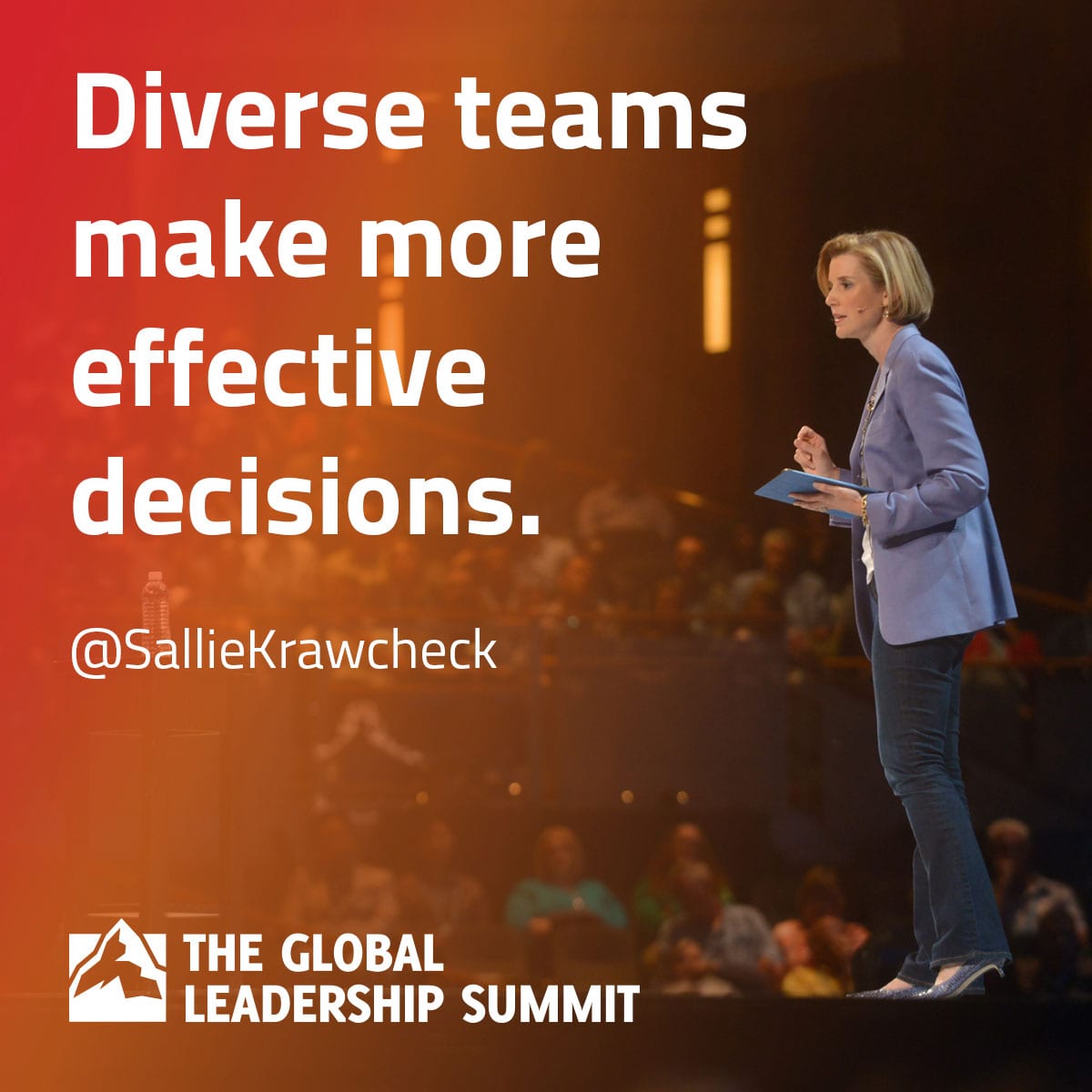
Diverse teams make more effective decisions.
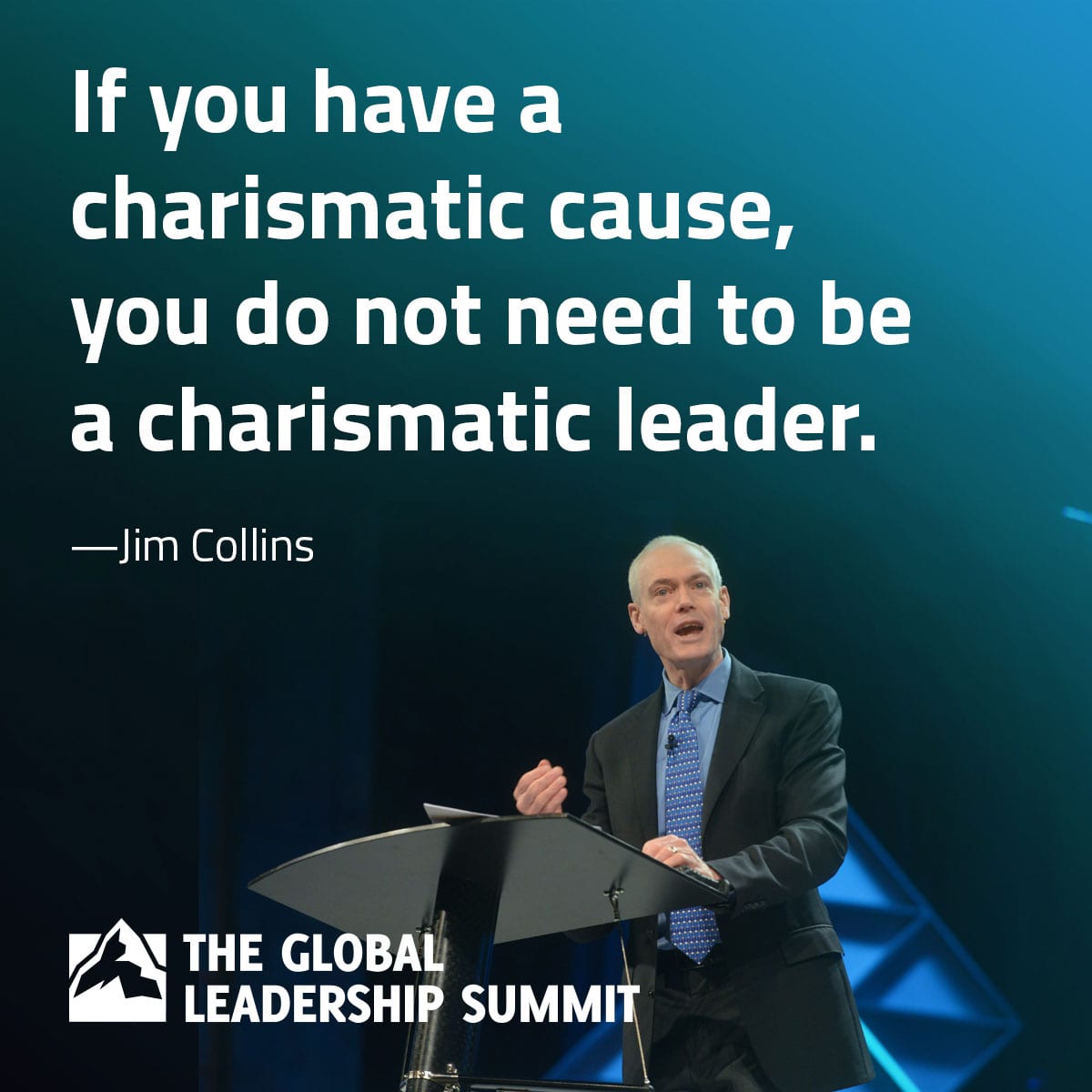
If you have a charismatic cause, you do not need to be a charismatic leader.
“We welcome and encourage comments on this site. There may be some instances where comments will need to be edited or removed, such as:
If you have any questions on the commenting policy, please let us know at heretoserve@globalleadership.org”
Recent Comments